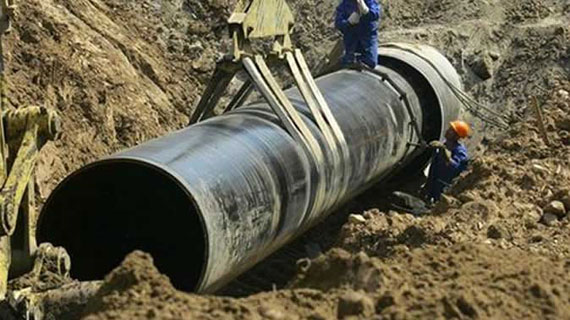
THE Bulawayo City Council has not been pumping water from Mtshabezi Dam since Friday due to an unspecified problem on the pipeline linking the dam to the local authority’s supply system.
NQOBILE BHEBHE CHIEF REPORTER
According to a council report, there has been no pumping from Mtshabezi due to a breakdown and the Zimbabwe National Water Authority is currently working on the pipeline to ensure normal pumping resumes.
A council official speaking on condition of anonymity said the breakdown had nothing to do with the pipeline itself, but other equipment.
“It is not the pipeline that has broken down per se, but it is a breakdown of equipment either at the pump station or somewhere along the pipeline that has affected pumping. If there had been a problem on the actual pipeline, it would have simply been called a pipeline burst,” the official said.
Mtshabezi supplies about 17 megalitres of water to Bulawayo and is regarded as the medium-term solution to the city’s perennial water problems.
The laying of the 41km pipeline from Mtshabezi Dam to Umzingwane Dam was completed in October 2012, but council could not draw water from the dam at full capacity because the pipeline was not electrified. Engineers had to resort to using generators, which did not have the capacity to power the pumps continuously.
- Chamisa under fire over US$120K donation
- Mavhunga puts DeMbare into Chibuku quarterfinals
- Pension funds bet on Cabora Bassa oilfields
- Councils defy govt fire tender directive
Keep Reading
Two weeks ago, council reduced the water-shedding period to once a week following significant inflows into the supply dams which were at 40,4% capacity.
Bulawayo’s average daily water consumption is about 100 000 cubic metres. According to yesterday’s council daily water supply figures, the city’s supply dams had recorded 43 989 129 cubic metres of water inflows from the recent heavy rains which lashed the country.
Insiza Mayfair had 23 381 172 cubic metres, Inyankuni (2 698 085), Lower Ncema (2 958 156), Umzingwane (6 476 207), Upper Ncema (5 715 629) and Mtshabezi recorded 2 759 880. Inflows into Lower Ncema include outflows from Upper Ncema, which has since been recommissioned.











